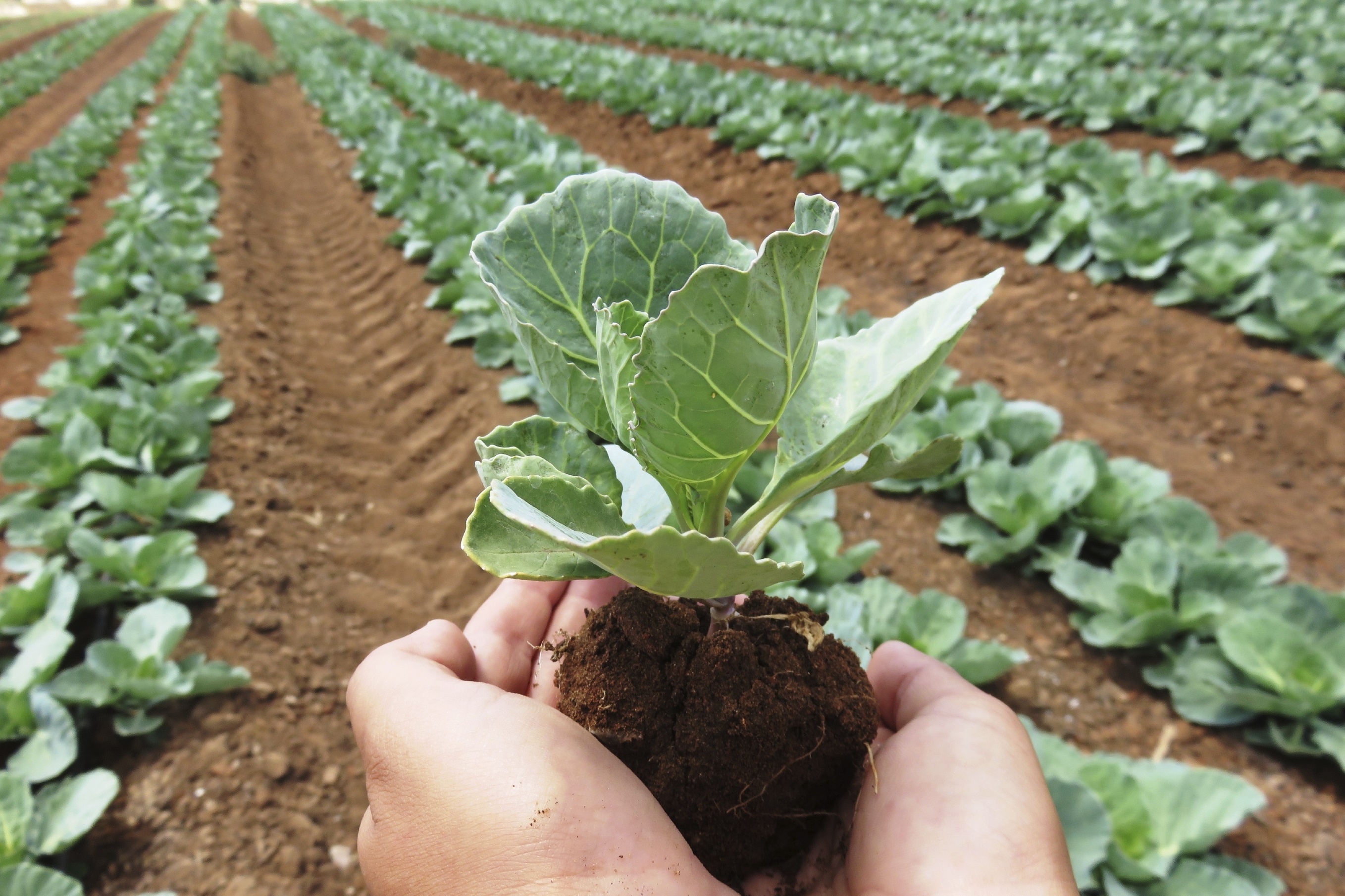As the organic industry grows, there are questions about whether organic can reach a large scale while preserving its integrity and values of soil health, water quality, healthy food, family farms and rural communities, and biodiversity.
Those questions were addressed in a discussion among three organic food company executives at the Organic Trade Association’s Bold Ideas + Critical Conversations conference held in May. The executives were Melissa Hughes, chief mission officer and general counsel, Organic Valley; Carla Vernon, president of the natural & organic unit, General Mills; and Jeff Huckaby, president, Cal-Organic/Grimmway Farms. The discussion was moderated by Naomi Starkman, founder and editor-in-chief, Civil Eats.
“Can do just as good a job at scale without cutting corners”
Huckaby said his company’s organic farm has grown to 50,000 acres while maintaining a strong commitment to organic integrity.
“There are a lot of misconceptions about growing organics on a large scale. We can do just as good a job at scale without cutting corners. We try to keep organic standards as high as we can and be the best organic growers we can,” he said.
Hughes said her cooperative has been able to adhere to its organic commitment while growing from 7 farmer members to more than 2000.
“Our purpose was to keep families on the farm, and by producing organic we were able to do that,” she said.
Vernon said her company, which has the second largest portfolio of organic and natural products among U.S. food companies, has learned the value of organic and what it can accomplish.
“To keep credibility in organic we have had to be in learning and listening mode. We have become inspired to learn that organic isn’t just about eliminating (chemical) inputs; it’s about better agricultural practices for the planet,” she said.
She admits that many consumers don’t trust “Big Food.” “Things have been done to build a climate of mistrust in big food. People want transparent companies, and we have to play by those rules.”
On the other hand, consumers trust the organic seal, according to Hughes. “Our consumers show trust in the seal. How do we take that trust and grow the industry and community?”
“We need to be challenging”
Hughes said organic industry members need to challenge themselves to grow. “The organic movement was founded on challenging the current system. We need to be challenging, thinking where there are opportunities for growth, doubling the amount of production. We provide a model for agriculture.”
Vernon is optimistic about scaling up organic, citing General Mills’ commitment to one million acres of land farmed using regenerative agriculture practices.
“We don’t look at growing to scale as a problem. Scale isn’t the polar opposite of integrity. We will scale with integrity.”
A focus on soil health, which is the foundation of regenerative agriculture, is key to scaling organic with integrity, Huckaby said.
“Soil health is everything. Our organic crops out-produce conventional crops because of our attention to soil health and crop rotations.”
Starkman asked what advice the executives would give to companies entering the organic industry.
“Take advantage of the wisdom around you,” Vernon said. “We’ve learned from Epic Provisions (General Mills subsidiary and organic meat snack maker) and Will Harris (owner of regenerative meat producer White Oak Pastures). There is so much wisdom out there. Be open to feedback.”
“Don’t cut corners,” Huckaby said. “Take your time to put a plan together to develop a good high-end product. The demand is there.”
“It’s about knowing who you are and what you believe in at the start,” Hughes said. “You have to understand what is important at the beginning.”
“There should be barriers to make sure things are done right”
All three executives agree on the need for more organic farming acres. “We need to get as many acres transitioned as we can,” Huckaby said.
But an Organic Valley farmer wondered: “How do we get to five percent (organic acreage), and how do you protect the farmer while scaling up?”
Laura Batcha, executive director of the Organic Trade Association, said she often hears people ask why the organic industry can’t make it easier for farmers to enter the market. “They ask: why is that three-year transition period important?”
“There should be barriers to make sure things are done right,” Huckaby said. “It can take three years to build soil, farming organically and not cutting corners.”
He also said there are programs to help farmers during the transition period.
“You are well rewarded after those (three) years,” he said.
As the organic movement expands, its influence on government policy also grows.
“When you get 50,000 organic acres as we have, we are in a position to push our agenda (to lawmakers),” Huckaby said.
“At General Mills, we have expert voices to make sure regulations and policy will continue to support organic farmers,” Vernon said. “We are trying to make sure the policy isn’t devalued.”
Finally, Hughes said the challenge for the organic industry is to get people to appreciate what she called “beautiful food.”
“We have to have access to organic food, and not at the expense of the farmer. You are what you eat and people should be willing to invest in their bodies and in the farmers growing their food.”








